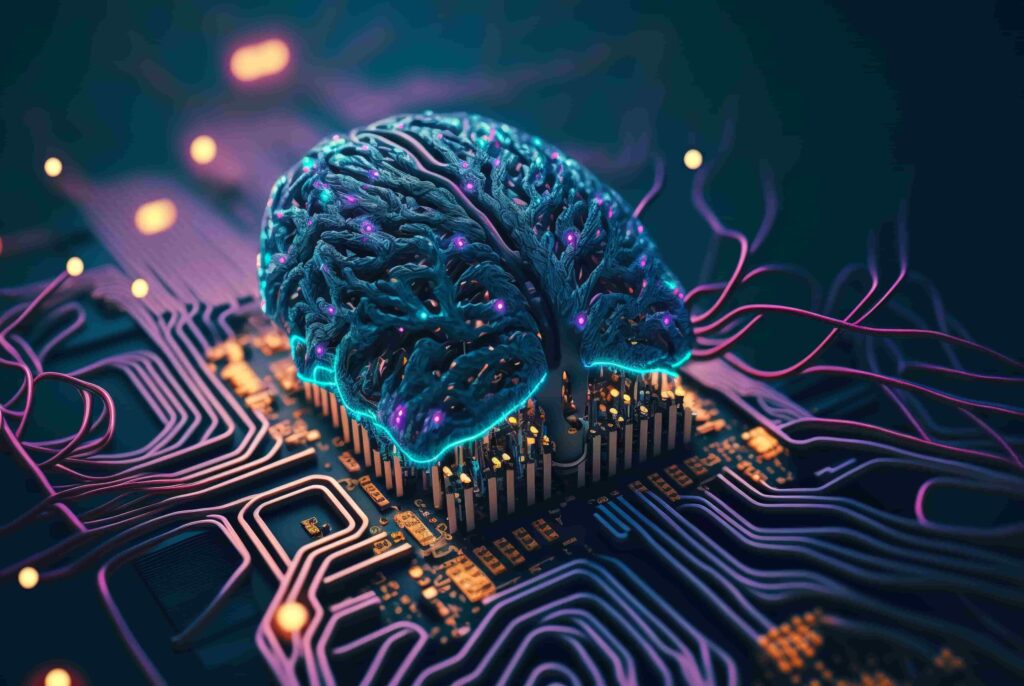The digital marketing landscape is evolving faster than ever. What used to rely heavily on manual strategies and broad targeting has now shifted toward precision, automation, and personalization. At the heart of this transformation is Artificial Intelligence (AI). From analyzing customer data to automating campaigns, AI is reshaping how businesses reach, engage, and retain their audiences.

What Is Artificial Intelligence in Marketing?
In digital marketing, AI refers to the use of machine learning, algorithms, and data-driven technologies to optimize campaigns and improve customer experiences. Instead of relying only on human decision-making, marketers can leverage AI to process massive amounts of data in real time and generate actionable insights.
Common applications of AI in marketing include:
- Predictive analytics – forecasting user behavior.
- Content personalization – delivering tailored recommendations.
- Chatbots and virtual assistants – providing instant customer support.
- Programmatic advertising – automating ad placement and targeting.
- Sentiment analysis – monitoring consumer opinions across platforms.
Benefits of AI in Digital Marketing
AI offers significant advantages for both brands and consumers. Some of the most notable benefits include:
1. Enhanced Personalization
Consumers expect relevant experiences. AI enables marketers to analyze user data and deliver personalized recommendations, product suggestions, or email campaigns that align with individual preferences.
2. Improved Customer Insights
Traditional analytics can only go so far. With AI, businesses gain a deeper understanding of customer behavior, motivations, and buying patterns, making it easier to predict future actions.
3. Efficiency Through Automation
AI reduces the need for repetitive tasks, such as sending follow-up emails, segmenting audiences, or adjusting ad bids. This allows marketers to focus on strategy rather than manual execution.
4. Real-Time Decision Making
Campaigns powered by AI can adapt in real time. For example, programmatic advertising systems automatically optimize ads based on performance data, ensuring better ROI.
5. Cost Savings
By reducing wasted ad spend and improving targeting accuracy, AI helps businesses allocate budgets more effectively.
Key Applications of AI in Digital Marketing
Chatbots and Customer Service
AI-driven chatbots are now a standard feature on websites and social media platforms. They provide instant support, answer common questions, and guide users through sales funnels 24/7.
Predictive Analytics
AI tools can predict future trends based on historical data. This allows marketers to anticipate customer needs and tailor campaigns accordingly.
Content Creation and Optimization
From automated blog outlines to AI-generated product descriptions, artificial intelligence supports content marketing by making production faster and more data-driven. AI can also suggest SEO improvements and optimize for higher search visibility.
Programmatic Advertising
AI takes ad placement beyond guesswork. Programmatic platforms analyze user data to display ads to the right audience at the right time, significantly improving engagement rates.
Email Marketing
AI-powered email campaigns adjust subject lines, timing, and content dynamically, increasing open rates and conversions.
Real-World Examples
- Amazon: Uses AI to power its recommendation engine, boosting cross-selling and upselling opportunities.
- Netflix: Relies on AI algorithms to suggest personalized movie and TV show recommendations.
- Coca-Cola: Applies AI for analyzing consumer feedback and creating targeted ad campaigns.
Challenges of AI in Digital Marketing
While the benefits are significant, AI adoption in marketing also presents challenges:
- Data privacy concerns – Consumers are increasingly aware of how their data is used.
- High implementation costs – Smaller businesses may struggle with advanced AI tools.
- Dependence on quality data – AI is only as effective as the information it receives.
- Ethical considerations – Over-automation can sometimes make interactions feel impersonal.
The Future of AI in Digital Marketing
AI is not just a trend — it’s becoming the foundation of modern marketing strategies. Future developments will likely include:
- Voice search optimization as voice assistants become mainstream.
- Hyper-personalization using advanced behavioral analytics.
- AI-driven creative tools for generating ads, videos, and interactive content.
- Integration with AR/VR to create immersive shopping experiences.
Conclusion
Artificial intelligence is revolutionizing digital marketing by making strategies more personalized, efficient, and data-driven. Businesses that adopt AI tools can improve customer experiences, optimize ad spend, and gain a competitive edge in the digital space.
As technology advances, AI will move from being a helpful tool to an essential component of every successful marketing strategy. The key for businesses is to embrace these innovations early and use them responsibly to build lasting customer relationships.


